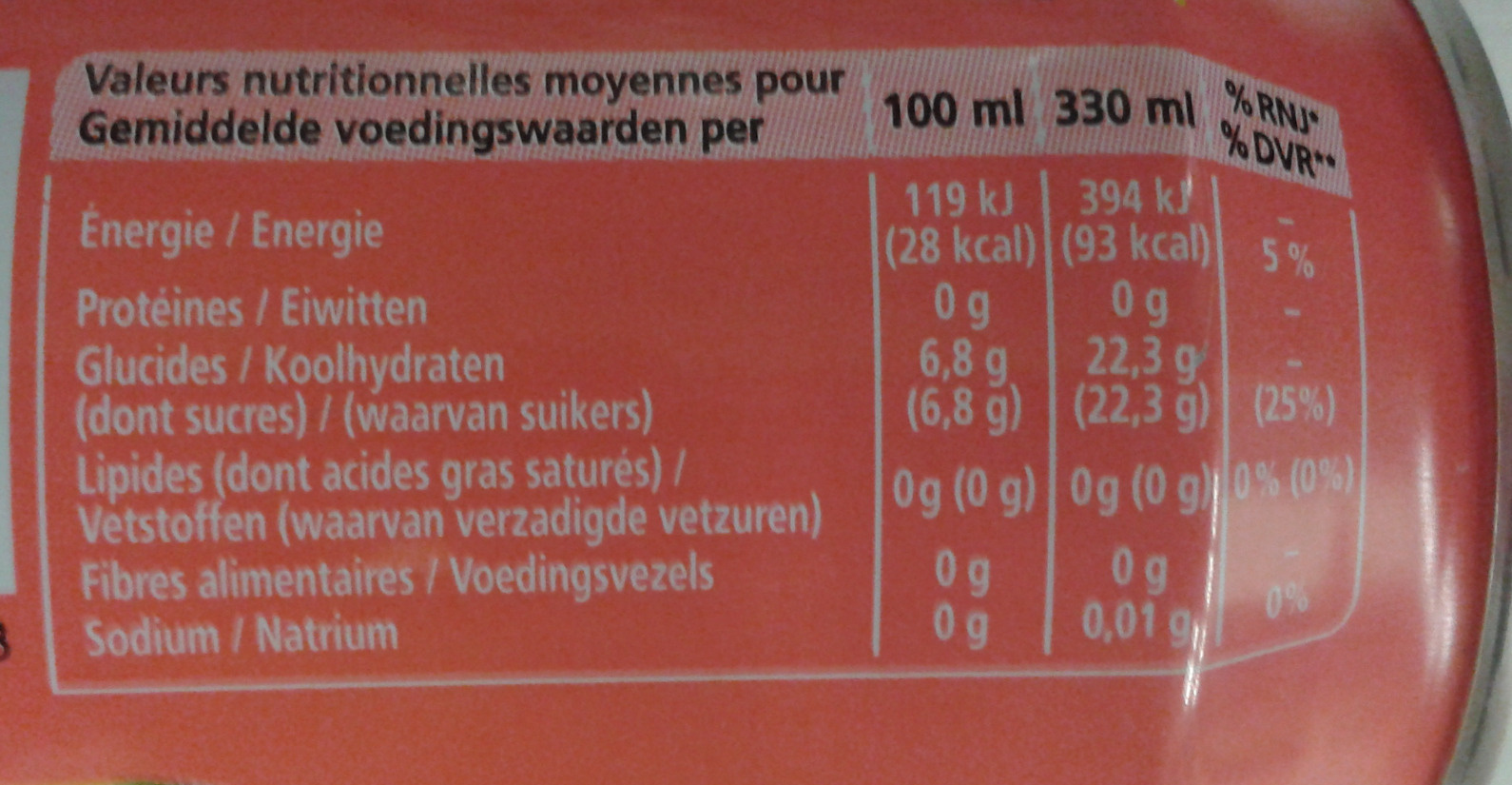Pompelmoes - Schweppes - 330 ml
This product page is not complete. You can help to complete it by editing it and adding more data from the photos we have, or by taking more photos using the app for Android or iPhone/iPad. Thank you!
×
Barcode: 5410221381508 (EAN / EAN-13)
Common name: Boisson gazeuse sucrée
Quantity: 330 ml
Packaging: fr:Boîte alu
Brands: Schweppes
Categories: Beverages, Carbonated drinks, Sodas, Sweetened beverages
Origin of ingredients: France
Countries where sold: Belgium
Matching with your preferences
Environment
Packaging
Transportation
Report a problem
Data sources
Product added on by malikele
Last edit of product page on by packbot.
Product page also edited by gall, stephane, thaialagata.
If the data is incomplete or incorrect, you can complete or correct it by editing this page.










